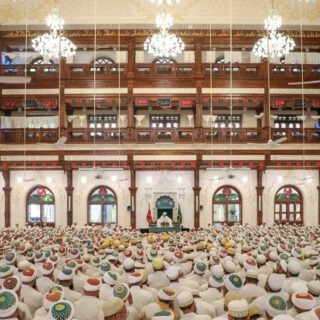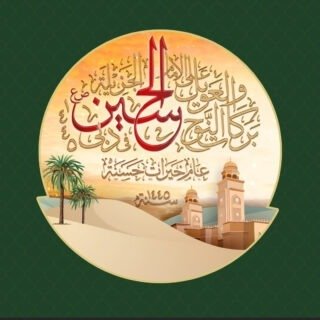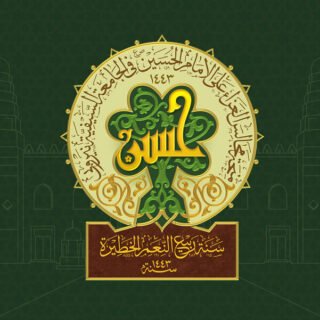One of the asmaa’ husna, blessed names, of Allah Ta’ala is Salaam.
Muslims greet each other by saying السلام عليكم. It is said that before Islam, Arabs used to greet each other saying, ‘An´im Sabaahan’, meaning ‘good morning’. Saying السلام عليكم entails the barakat of one of Allah’s blessed names as well as that of Islam. Salaam means safety, peace and protection.
In one of his discourses, al-Dai al-Ajal Syedna Mohammed Burhanuddin RA stressed upon Mumineen to greet their brethren with السلام عليكم instead of using greetings such as ‘good morning.’
World over, different nations and different religions have their own distinct form of greeting. The following meanings and various connotations of the word سلام offer an understanding of the unique and unmatched way of greeting in Islam:
– the activity of protecting someone or/and something
– pact to cease hostilities
– promoting harmonious relations
– the state of being certain that adverse effects will not be caused by some agent under any conditions
– the absence of mental stress and anxiety
A Muslim conveys the above messages to the one whom he greets by saying السلام عليكم. How different and how lofty these messages are than just uttering ‘good morning’.
Verbal greetings are usually accompanied by some kind of physical act that complements the verbal expression. Some shake hands, while others join palms. Similarly, السلام عليكم is expressed with kissing of hands. This way of greeting is unique to Thaqaafat Fatemiyah. A mumin’s child is taught to do salaam when he/she is just a few months old.
It is narrated that the people of Kutama were an ideal in their deeds and characters. Dai Abi Abdillah made them into exemplary people. Each individual of Kutama was habituated to greet the other by doing musaafaha (doing salaam) and mu´anaqah (hugging). Even the noblest of them would not shy away from practising this with the most ordinary of his brethren. Dai Abi Abdillah too greeted his visitors in the same manner.
Even today, whenever Syedna al-Dai al-Ajal TUS visits a town or a city, granting Mumineen the honour of mu´anaqah is a distinct element of the maqdam majlis. Likewise, we have all seen how Al-hayy al-muqaddas Syedna Mohammed Burhanuddin RA did mu´anaqah with Saadaat Kiram DM on his 100th Milad Mubarak and have heard his wish to grant each Mumin the honour of mu´anaqah.
Al-Dai al-Ajal Syedna Aali Qadr Mufaddal Saifuddin TUS is the epitome of noble characters. His continuous guidance towards the kalaam mubarak “أحسن الى من اساء إليك” washes away hostilities from the hearts of Mumineen and promotes harmonious relations among them. May Allah grant him a long and healthy life for safeguarding Thaqaafat Fatemiyah for generations to come.








